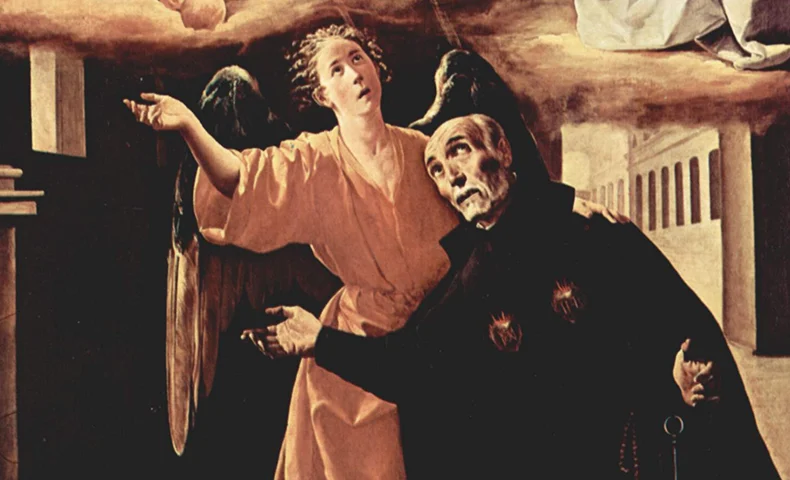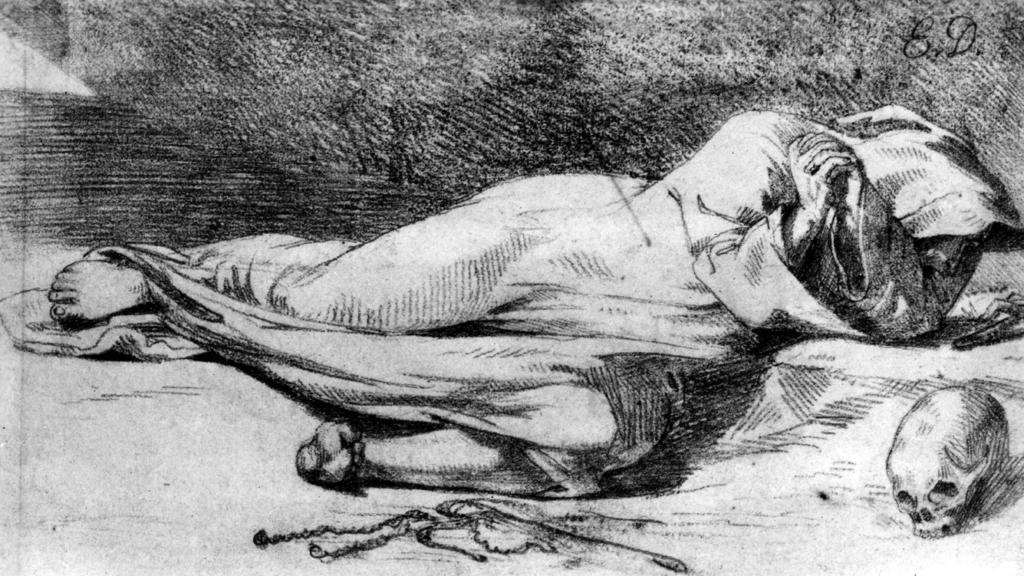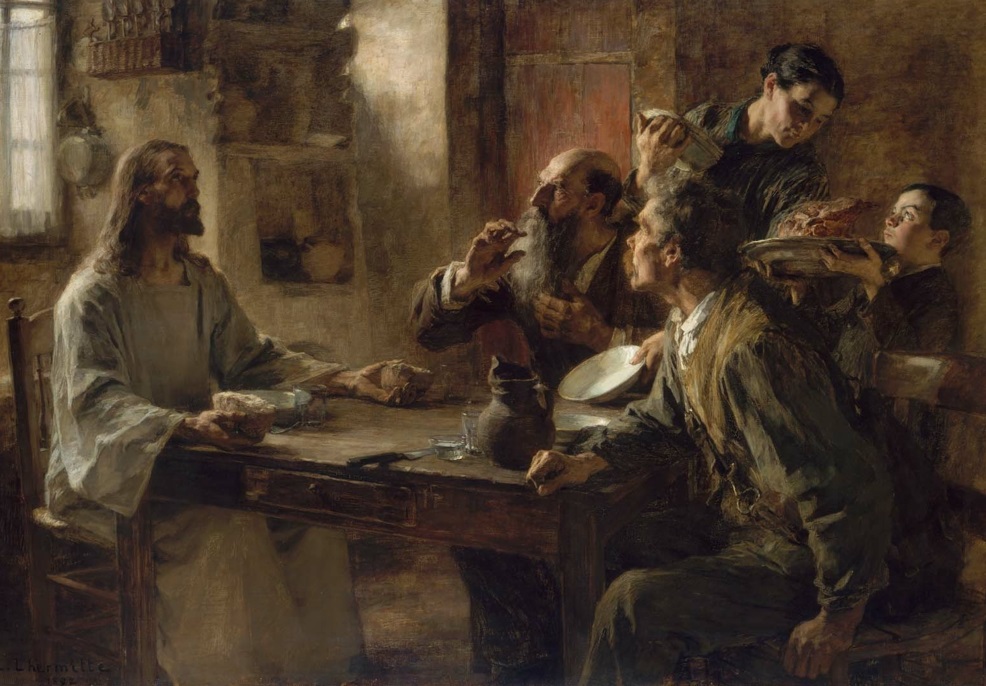According to this, one of the advantages we are to derive from these temptations, is to humble ourselves before God, acknowledge our misery and frailty, and to say to him: You see, O Lord, what I am: what can be expected from filthy clay but poisonous exhalations? Who can hope for anything else from an earth that you have cursed, but thorns and briars? It can produce nothing else, unless you cultivate it by your grace. Here is matter enough for our humiliation. If a poor coarse coat, which is an exterior thing, serves, as the saint takes notice, to humble him that wears it, what must an infinity of shameful thoughts, which they had before contracted. Wherefore this kind of fire is to be extinguished by tears, and by bitterly weeping and bemoaning our past follies. St. Bonaventure says, that it is very good remedy against these temptations, to look upon them as a due chastisement for our past disorders; and by an humble and patient submission to them, to say with Joseph’s brethren, “We deserve to suffer all this, because we have sinned against our brother” (Gen. xlii. 21). God is moved with mercy, when man acknowledges that he deserves the punishment which the divine justice inflicts upon him, as the same father observes; and holy Scripture tells us, that the people of Israel made frequent use of this means to obtain their pardon from God. Another admirable means to obtain God’s assistance in all our temptations, and particularly in impure ones, and to make us come off always conquerors, is to doubt our own strength, and put all our confidence in God. I have already spoken of this, and I shall speak more hereafter, when I come to treat of the fear of God; so that at present it shall suffice to say that, generally speaking, humility is a sovereign antidote for all manner of temptations. The revelation which St. Anthony had is well known. He one day saw in spirit the whole earth covered with snares, and all of them were so dexterously laid, that being affrighted at the vision, he cried out, Lord, who can escape all these? And presently it was answered him, The humble of heart, be therefore humble, and God will deliver you from those tempting snares of the flesh. “God has a particular care of little ones,” says David: “I myself was humbled, and he delivered me. (Ps. cxiv. 6.) The highest mountains suffer most from storms; a tempestuous wind roots up the tallest oak; whilst the little shrub and the osier, by yielding and plying to the wind, resume their former attitude as soon as the violent blast is over.
According to this, one of the advantages we are to derive from these temptations, is to humble ourselves before God, acknowledge our misery and frailty, and to say to him: You see, O Lord, what I am: what can be expected from filthy clay but poisonous exhalations? Who can hope for anything else from an earth that you have cursed, but thorns and briars? It can produce nothing else, unless you cultivate it by your grace. Here is matter enough for our humiliation. If a poor coarse coat, which is an exterior thing, serves, as the saint takes notice, to humble him that wears it, what must an infinity of shameful thoughts, which every moment pass through our hearts, wherein they make so much havoc, do to us? Holy brother Giles compares our flesh to a hog, that takes pleasure in wallowing continually in the mire, and to a beetle, that always lives in dirt. This consideration ought to prevail so far upon us, as to divert our attention from impure thoughts; and commonly it is better not to dwell on, or combat the objects which the temptation presents, but immediately to turn our eyes from them, and contemplating our own condition, say with an humble heart, certainly I am a very wicked creature, since so many bad thoughts as these come into and fill my mind; for by this we evade the stroke intended by the devil, and so put him to confusion. It is also very profitable, when we are surprised with bad thoughts and evil motions, to conceive as much confusion for them as if we were really in fault, for hereby we shall be very far from consenting to them. The devil, the first author of pride, cannot see so much humility without being in a fury. And you cannot vex him more or sooner oblige him to leave you in peace, than by turning those means by which he designed to ruin you, to your own good and advantage. Moreover, this holy confusion is a sign that the will is very far from consenting to sin, and consequently brings along with it great confidence and satisfaction.
‘The Practice of Christian & Religious Perfection’ written by Father Alphonsus Rodriguez

Following quote and previous image taken from a Franciscan Media page-their Saint of the Day
Born in Spain in 1533, Alphonsus inherited the family textile business at 23. Within the space of three years, his wife, daughter, and mother died; meanwhile, business was poor. Alphonsus stepped back and reassessed his life. He sold the business, and with his young son, moved into his sister’s home. There he learned the discipline of prayer and meditation.
At the death of his son years later, Alphonsus, almost 40 by then, sought to join the Jesuits. He was not helped by his poor education. He applied twice before being admitted. For 45 years he served as doorkeeper at the Jesuits’ college in Majorca. When not at his post, he was almost always at prayer, though he often encountered difficulties and temptations.
His holiness and prayerfulness attracted many to him, including Saint Peter Claver, then a Jesuit seminarian. Alphonsus’ life as doorkeeper may have been humdrum, but centuries later he caught the attention of poet and fellow-Jesuit Gerard Manley Hopkins, who made him the subject of one of his poems.
Alphonsus died in 1617. He is the patron saint of Majorca.
In Honor of St Alphonsus Rodriguez
a poem by Gerald Manley Hopkins
Honour is flashed off exploit, so we say;
And those strokes once that gashed flesh or galled shield
Should tongue that time now, trumpet now that field,
And, on the fighter, forge his glorious day.
On Christ they do and on the martyr may;
But be the war within, the brand we wield
Unseen, the heroic breast not outward-steeled,
Earth hears no hurtle then from fiercest fray.
Yet God (that hews mountain and continent,
Earth, all, out; who, with trickling increment,
Veins violets and tall trees makes more and more)
Could crowd career with conquest while there went
Those years and years by of world without event
That in Majorca Alfonso watched the door.








Recent Comments